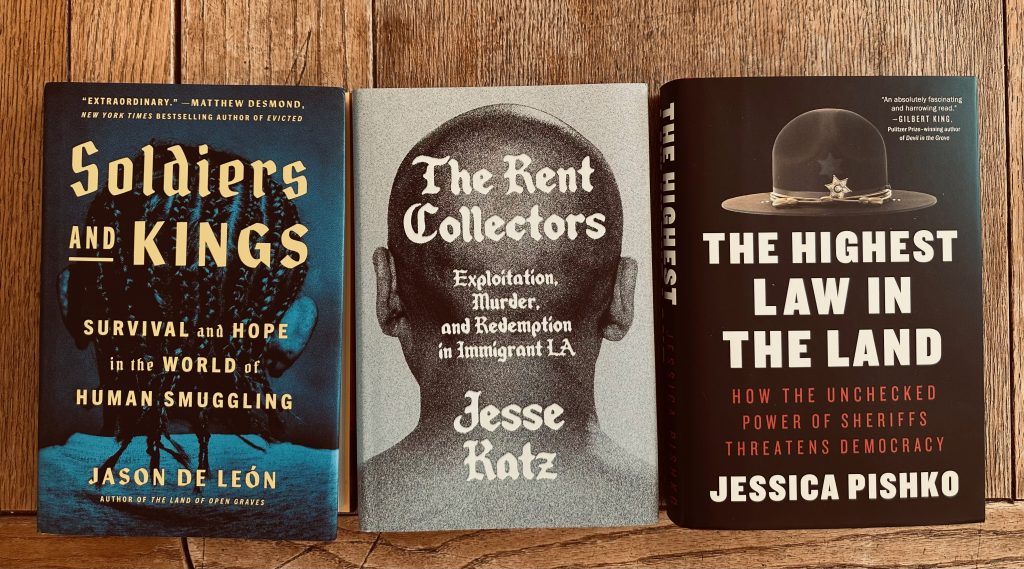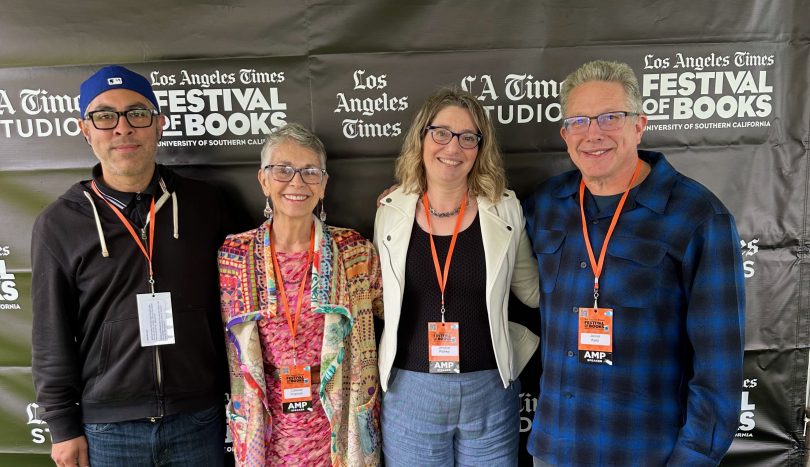This past Saturday, April 26, when the Los Angeles Times Festival of Books opened its doors at the University of Southern California at 9:55 a.m, the campus was in the midst of being deluged by the cold hard rain that was falling on much of LA County that morning.
Those who were involved with what has become the nation’s largest literary festival, worried that many of the Angelenos who had plans to attend one or more of the 100 author panels scheduled for Saturday, would elect instead to stay home where it was warm and dry.
I was the moderator of a panel that was scheduled to start on Saturday at 10:30 a.m., when the rain was particularly energetic in its efforts to drench the clothes of those in attendance, umbrellas or no umbrellas. Thus I was one of those who worried.
My concern was needless. The campus was already packed with damp but enthusiastic book lovers. And, every seat in the auditorium that hosted our three-author panel was full to the point of having to turn people away.
Gangs, smugglers, and anti-immigrant sheriffs
The panel I moderated, titled Undocumented: The Price of the Promised Land, featured three books by three award-winning authors whose years of extremely skilled and often dangerous reporting produced three important books that are also exceptionally well-written page-turners.
And while we’re on topic of good writing, on Friday night, the LA Times revealed the winners of its 45th Annual Los Angeles Book Prizes. When the name of the first prize prize winner in the category of Non-Fiction, Current Interest, the announcer called the name of panelist Jesse Katz. He won the prize for “The Rent Collectors: Exploitation, Murder, and Redemption in Immigrant LA,” which you can see pictured below, and which was the wonderful book he discussed at Saturday’s panel.

The audience also appeared to be particularly interested by the fact that, in addition to answering questions about their books, the panel’s three authors had insights regarding issues certain filling the news, in particular the matter of immigrants who were accused by the U.S. government of having gang tattoos that suggested they were active gang members, which theoretically justified their deportation to El Salvador’s notorious CECOT prison, the deportation accomplished without anything even vaguely resembling due process.
As moderator, I found that the only problem the audience members had with Saturday’s hour-long panel was that no one seemed to want it to end. But when it did end, a sizable number of audience members rushed the nearest book-selling booth that carried the work of the three panelists, then got in line to get their new books signed.
WLA will have much more on the ongoing-immigrant deportation issue, in upcoming stories.
But in the meantime, we strongly recommend that you acquire one or all of the books pictured above. You won’t be sorry.

